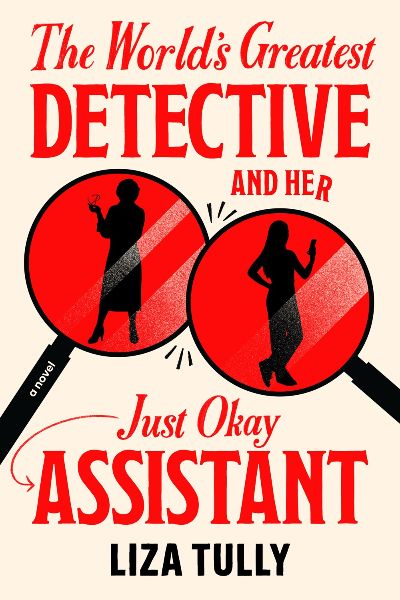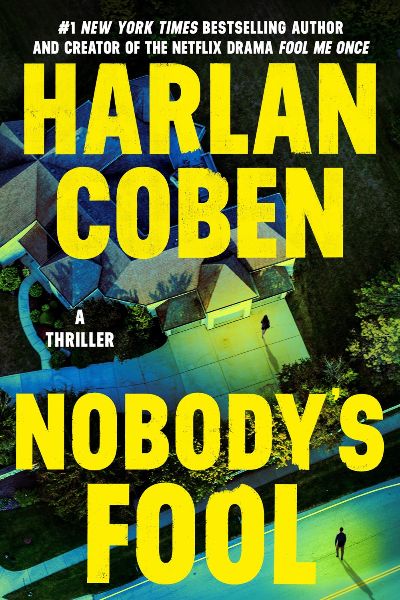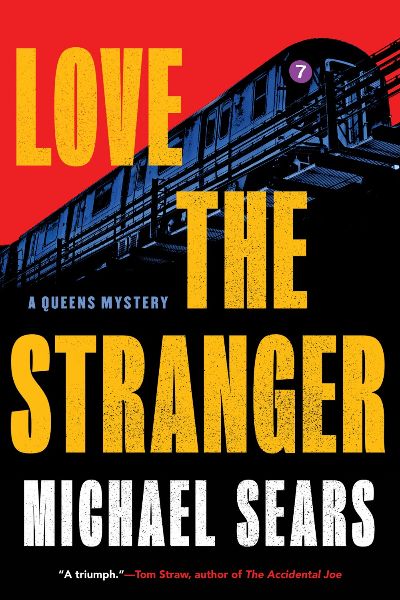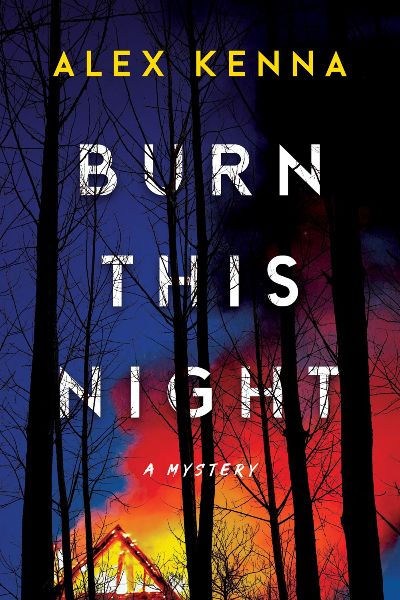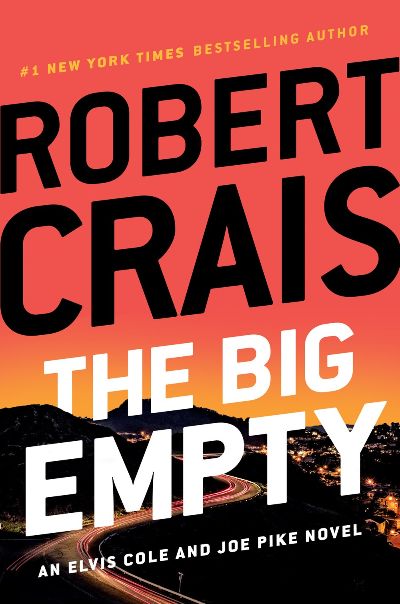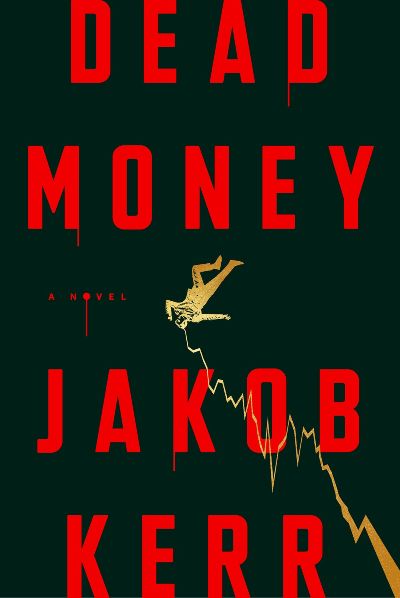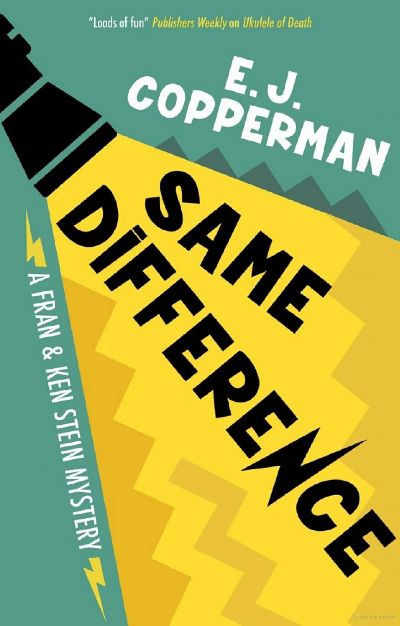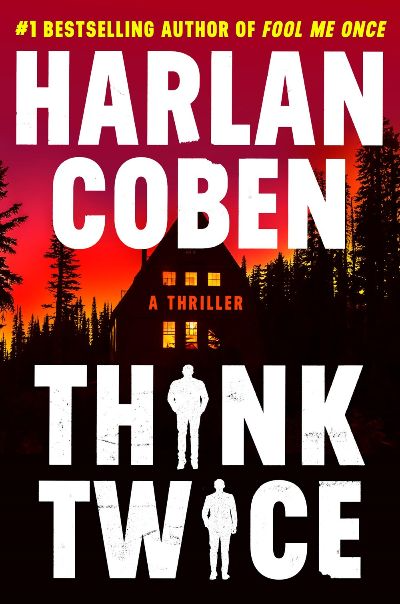A traditional mystery full of quirky characters and humorous situations, this feel-good narrative is told by Gen Z’s Olivia Blunt, who remains ticked off with her famous boss (low wages, no opportunities for growth, hostile environment), Boomer Aubrey Merritt. Olivia dreams of being more than an assistant, but in the meantime she’s soaking up everything she can about the job from Aubrey (she has to retire or die someday, right?) while evaluating possible cases. Which is how she and Aubrey end up on Vermont’s beautiful Lake Champlain, where they’ve been hired to investigate the murder—or is it suicide?—of Victoria Summersworth, the matriarch of a family that owns a sprawling resort on the lake. Readers will enjoy the cast of largely middle-aged family members, employees, and general hangers-on as Olivia and Aubrey grill each and every one of them. The ending may be totally surprising as Aubrey delivers quite the denouement in the tradition of Agatha Christie.
Private Investigators
Coben (Think Twice) brings back former Detective Sami Kierce from Fool Me Once (the book and the NetFlix series) as his past crashes into his simple life. Sami works as a private investigator, doing jobs that embarrass him. He teaches a true-crime class at night school and lives with his wife and year-old son. Sami might want answers from past events in his life, but thinks he will never learn the truth until a woman he recognizes arrives in his class. When Sami graduated from college, he met Anna on a trip to Spain, and for days their lives were bliss until she ended up dead. But the woman Sami sees in his class is Anna, and Sami stumbles into a larger mystery that seems unrelated to his time overseas. To add to the investigator’s increasing stress, the person responsible for killing his partner when he worked in law enforcement is released from prison and asks Sami to reinvestigate the case to prove his innocence. Then Sami’s wife, Molly, thinks she is being stalked, and the lurid texts proving she’s right begin popping up on Sami’s phone. Coben juggles several complex stories, each one of which would be compelling by itself but that together create a page-turning experience that will leave fans and newcomers to Coben enthralled. The twists are shocking, and Sami; his wife, Molly; and the supporting cast are so much fun. Coben would be foolish not to bring them back for another story.
Queens native son and former high-powered Manhattan attorney Ted Molloy is rebuilding his once-stellar legal career. His fancy office is now Gallagher’s Pub, where he partners with LesterYoung McKinley on foreclosure investment deals and represents his activist girlfriend, Kenzie Zielenski’s, organization in its battle to stop the construction of “the Spike,” a mega-development project threatening Corona’s immigrant communities. As the campaign against billionaire real-estate developer Ron Reisner heats up, someone attempts to sabotage Ted’s legal efforts and undermine Kenzie’s reputation. At the same time, Kenzie worries that a shady immigration lawyer is cheating Mohammed, a recent Yemeni immigrant who chauffeurs Kenzie in his cab. Dropping by the lawyer’s office one morning, she stumbles upon his body and spots a shadowy figure fleeing the scene. Could it be Mohammed’s 14-year-old stepson, Haidir? In the entertaining follow-up to his 2022 Nero Award winner Tower of Babel, Sears vividly captures the corrupt seediness of local real estate development dominated by big money and embraces the “kaleidoscope of colors, classes, and ethnicities” that marks New York’s largest borough. Fans of Dennis Lehane’s Boston-based Patrick Kenzie and Angela Gennaro series will enjoy following the gritty adventures of a flawed but appealing sleuthing couple.
Kate Myles has a lot going on. The former LAPD cop, her career ruined by a pain-pill addiction brought on by a car crash, has lost her marriage and custody of her beloved daughter, Amelia. She’s now working as a private detective, rolling her eyes at old-time movie assumptions. It’s far from glamorous, and she’s far from ready for more drama in her life. But no matter: while living at her mom’s, she discovers paperwork that leads her on a quest to find biological relatives, a plot line that includes an intriguing aspect of the use of DNA in crime cases, and that also leads her to Idlewood, a town with a sad history. Hired to clear the name of a drug addict who’s accused of killing his sister in an arson attack, she also investigates a local cold case, of a young woman who was killed years before. How all these things are related is the story of every small town, with Kenna perfectly portraying the intertwined regrets, missed opportunities, and love that make each place unique. Better again is her portrayal of Myles, a gutsy, lovable character who pushes herself to the brink and more for those she loves. A thoroughly enjoyable read.
Traci Beller is a popular influencer with millions of followers inspired by watching her bake. It’s been ten years since her father, Tommy, never returned home, with the local police attributing it to him abandoning his family. Now, Traci wants answers. She reaches out to the best detective to learn the truth, Elvis Cole. Elvis has his work cut out for him trying to track down someone missing for a decade, but he’s willing to give it a shot, though he’s doubtful he will uncover anything more than what the police could find. But the detective stumbles upon a mystery involving the last person who saw Tommy alive and refuses to talk about it. He starts seeing the same dark-colored vehicle following him and soon learns that people don’t want him to discover the truth and are willing to kill anyone to keep everything secret. This case started as a simple missing person case for Elvis, but becomes the one that could be his last. Crais masters compelling crime fiction by blending humor, terrific main characters, and suspense into a phenomenal package. Empty might be in the title, but this story is far from it.
Work has been sparse for detective Amos Parisman. He’s getting older, while his wife, whose dementia has become more advanced, requires greater attention. So when he’s asked to take on a job protecting a rare Torah—it was smuggled out of a North African Jewish community during World War II and somehow made its way to a small, rundown Sephardic temple in Hollywood—Amos is quick to say yes. A small, easy job, what could go wrong? Just wait and see. A bit of a classic gumshoe and a bit of a luft-mensch, or dreamer, Amos brings on his usual cast of characters to help out, from former-wrestler Omar to cousin Shelly to LAPD Lieutenant Bill Malloy (the two guardedly share information.) It’s a delight to follow Amos as he rolls around Los Angeles County, following potential leads while immersing himself in the world of rare books. Weinberger never fails to deliver a novel that’s as rich in character as it is in environment. Save it for that weekend when you need to escape.
Dead money is slang for wealth that’s held up by a clause in a will, and after Elon Musk-type Trevor Canon is found dead in his San Francisco tech-bro office, investigator Mackenzie Clyde finds that he recently had just such an amendment inserted into his will. A lawyer who now works as a sort of fixer at a venture capital firm, Mackenzie isn’t the most likely candidate to help the FBI with their case, but she’s ambitious and jumps at the chance when her boss wants to know what happened. Investigating Trevor’s associates is much more complicated than it should be. She’s also subjected to more exposed ankles in mens suits than she’d like, not to mention corporate babble like one associate’s drive to “leverage the leader that lays dormant within clients…to manifest a corporate identity in ways they’ve never crystallized” (snort). The FBI agent she works with, a rich kid who bucks the stereotypes of his upbringing, is having none of it, and together the duo relentlessly digs to the center of a technical and political tangle. Get ready for some startling revelations along the way. Lawyer and debut author Kerr was one of the first employees at Airbnb, and his absorption of the BS is our gain.
The third volume in Rosen’s Evander Mills series is the most powerful to date, going deeper into the community “Andy” Mills has created for himself while taking on the power of secrecy in post-World War II San Francisco. Former cop, currently a PI—without the documentation—Andy is called upon in this book to locate Howard Salzberger, a queer bookseller who has a little brown book that documents all of his customers, and who has loose ties to Andy. Howard has a book he is planning to sell—perhaps about the Mafia?—when he suddenly disappears. While this is historical fiction, set in the ’50s, readers of Rough Pages will surely reflect on the harassment and persecution of librarians, teachers, and students who seek or make available LGBTQ content in present-day America.
It’s tempting with some books to say “just read it,” and the second in Copperman’s Fran and Ken Stein (get it?) series is that type of book: quite unbelievable but totally seductive. Twins Fran and Ken were created by two scientists who played around with the twins’ genetics; they’re super tall, super strong, and a bit superhero-like. Their parents had to skip town when the two were babies, leaving them in the hands of a trusted friend. Today, the twins are all grown up and run their own Manhattan detective agency; in this episode, they are hired to track down a young trans woman, Eliza, who has disappeared, and who very much may not want to be found. The search for Eliza takes the duo through most of the City’s boroughs, entangles them in a handful of characters, and presents a plot that keeps growing more and more complex. But it’s the personal lives of the siblings that interest me the most, such as Fran’s on-again, off-again relationship with an NYPD detective and the rare communication she has with their parents. Will they ever be reunited?
Sports agent and former attorney Myron Bolitar works closely with his best friend, Win, in a lavish office in New York City. FBI agents visit one day and demand answers. One of Myron’s former clients, Greg Downing, is the prime suspect in a couple of murders, as his DNA was found under a victim’s fingernails. The only problem? Greg died three years ago, and Myron last saw him at his funeral. Myron and Greg had a history, and being curious how a dead man could murder someone, Myron asks Win for help, and they start digging for answers. Mobsters, false identities, and a string of murders committed by innocent people are only the tip of the iceberg in Coben’s latest. Myron and Win’s stories are personal favorites, and their relationship, banter, and puzzle-solving skills make for a great series. Think Twice is a classic story with a favorite duo and another great Coben thriller full of surprises and misdirection. Here’s hoping we meet these partners in action again soon.

